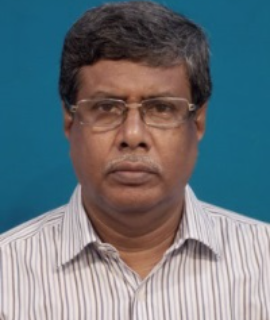Abstract:
Discharge of toxic heavy metals into our nature causes severe harm. Different plant operation generates heavy metal-bearing wastes, and dyes discharge of these wastes causes various damages to the living beings. Heavy metals and dyes played a significant role as pollutants among the harmful elements because of their high toxicity and high persistence. The adsorption process is an economical and efficient technique used for heavy metal removal.
Various natural bio-adsorbents, agricultural wastes, agricultural by-products, bio-polymers are available at low cost, with good adsorptive capacity. Design of adsorption column using suitable adsorbents for industrial-scale minimizes the operating cost for wastewater treatment which is beneficial for small and medium scale industries of developing countries. The batch study and continuous column study are essential for the scale-up design for industrial purposes.
Experiments were carried out to estimate the sorption capacity of various adsorbents and the effects of various operating parameters such as pH, temperature, adsorbent dose, contact time, column bed depth, influent flow rate, and influent metal ion concentration on the adsorption process. Different kinetic models were applied to the experimental result to investigate the process breakthrough curve and best model, further used for scale-up designing.
This study proposes a novel methodology of scale-up design for both batch and continuous operation, and obtained results suggest that selected adsorbents could be used further for industrial wastewater treatment.
Audiencetake-away:
- In the developing countries,i.e., 3rd World countries, exist a large number of small and medium-sized industries, discharge heave metals and dyes in their wastewater.
- These wastewater is discharge in drain, is directly flow into the nearby water bodies or agricultural fields, thus polluted it and ultimately enter into the food chain.
- These industries does not have sufficient fund to treat their wastewater.
- The use of agricultural waste materials as adsorbent shows a potential removal of heavy metals or dyes.
- Thus the use of waste materials is an example of circular economy, and also for collection of these materials has some job potential to the rural areas.
Biography:
Dr. Sudip Kumar Das is currently Professor and Former Head in the Department of Chemical Engineering, University of Calcutta. He has completed his Ph.D. and M. Tech. in Chemical Engineering from the Indian Institute of Technology, Kharagpur, and graduated from Calcutta's Chemical Engineering and Chemistry Hons. From the University of Calcutta He is also actively engaged in research related to different fields of Chemical Engineering, like single and multiphase (gas-liquid) flow through pipelines and piping components, multiphase flow through coils, fluidization and inverse fluidization, wastewater treatment technology, heavy metals, and organic pollutants removal from wastewater, Process Plant Safety, Computational fluid dynamics, artificial neural networks, and machinable glass-ceramics. He has published 1 book, 15 chapters, more than 250 papers in National and International journals, and presented many invited lectures at the Conferences. He has guided 20 Ph.D., 38 M.Tech. and more than 80 B. Tech. students. He has been a reviewer for more than 125 National and International journals. He was recipient of Indian National Science Academy Visiting Research Fellowship award 1999-2000, Research Ratna Award 2019 for best researcher in Environmental Engineering, The Bharat Joyti Puraskar 2018, Indira Gandhi Gold Medal Award 2016, The Best Citizen Award 2015, Dr. Radhakrishnan Gold Medal Award – 2015, 2014, Outstanding Faculty Award 2015, The Best Citizen of India Award – 2015, Bharat Gaurav Award 2014, best paper presentation award several times in International/National Conferences. He is member of Refrigeration and Air Conditioning Sectional Committee, ME 03, Bureau of Indian Standard, also in professional societies like, Indian Institute of Chemical Engineers (life), Institute of Engineers (Fellow), IEEE, Indian Association for Air Pollution Control (life), Indian Chemical Society (Fellow), Millennium Institute of Energy and Environment Management (life), International Congress of Chemistry and Environment (Fellow). He acted as the Head of the Chemical Engineering Department, University of Calcutta, 2010-2012, 2017-2019. He also served as Hony. Secretary 2006-2007, 2014, 2018 and Hony. Treasure 2005, 2011-2013 in the Indian Institute of Chemical Engineers. He also served as Hony. Treasure 2017 to till date in Indian Chemical Society. He also acted as Chairman, Calcutta Regional Centre, Indian Institute of Chemical Engineers, 2012-2014. Hony. Secretary and Hony. treasure for several years in the Calcutta Regional Centre, Indian Institute of Chemical Engineers.


